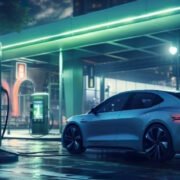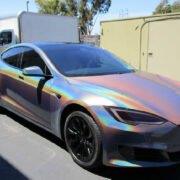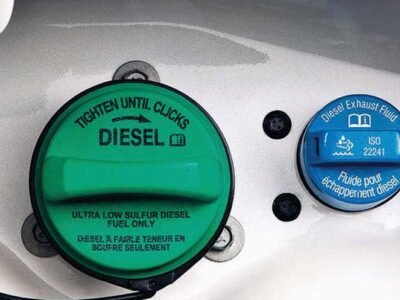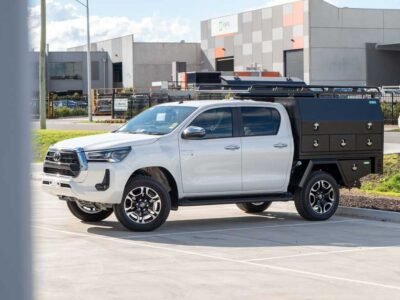You finally took the plunge and bought that Tesla Model S. It was love at first sight, and you knew you had to have it. But now that you’ve had it for a few months, you’re starting to notice that your monthly insurance bill is a lot higher than it was with your previous car.
Why is that? Is it because Tesla is a luxurious brand? Is it because the car is new and flashy? Actually, neither of those things is true. The real reason electric and hybrid cars are more expensive to insure has everything to do with the cost of repairing them.
Photo: https://unsplash.com/photos/WkqHU1G2_sg
There is a smaller market for hybrid and electric cars, so the insurance companies can’t spread the risk as easily
The insurance industry is all about risk. The more risky an activity, the higher the premiums will be. That’s why new driver car insurance is so expensive – they’re more likely to get into accidents. Similarly, cars that are more likely to be involved in accidents cost more to insure.
So, what does this have to do with hybrid and electric cars? Well, due to their relatively small market share, there is less data on these types of cars when it comes to accidents.
As a result, insurance companies perceive them as being riskier and charge higher premiums. In other words, the lack of data makes it difficult for insurers to spread the risk and ultimately results in higher prices for hybrid and electric car owners.
The cost of repairing electric and hybrid cars is higher than repairing traditional cars
Electric and hybrid cars are, on average, 20% more expensive to repair than traditional cars. The reason for this is that they contain a lot of complex electronic components that are very sensitive.
For example, if a traditional car gets in a fender bender, the damage can usually be fixed by replacing a few parts and giving the car a new coat of paint. With an electric or hybrid car, however, even minor collisions can cause serious damage to the electrical system. This means that repairs are often much more expensive.
Hybrid and electric cars are more expensive to insure because they are newer technology
You may have noticed that insurance companies charge higher rates for hybrid and electric cars than they do for traditional gasoline-powered vehicles. There are a few reasons for this.
- First of all, hybrid and electric cars are fairly new technologies, and insurers tend to charge higher rates for newer vehicles because they are more expensive to repair.
- In addition, hybrid and electric cars often have more expensive parts than gas-powered cars, making them even more expensive to insure.
- Finally, insurers consider hybrid and electric cars to be a higher risk because they are less common on the road, which means that drivers may not be as familiar with them.
As a result, insurers typically charge higher rates for hybrid and electric cars to offset the increased risk.
Electric and hybrid car insurance are more expensive because they are more likely to be stolen or vandalized
When it comes to electric and hybrid car insurance, there are a few things you need to know. First, these types of cars are more expensive to insure because they are more likely to be stolen or vandalized. This is due to the fact that they contain valuable parts that can be easily sold on the black market.
Additionally, electric and hybrid cars are also more expensive to repair, due to the fact that their batteries and electronics are more complex than those in traditional gas-powered vehicles. As a result, insurance companies charge higher rates for these types of cars.
However, there are some ways you can save money on your electric or hybrid car insurance:
- Many insurers offer discounts for drivers who have installed security devices such as GPS tracking systems or immobilizers.
- Additionally, some insurers offer discounts for drivers who use alternative fueling options such as solar power or wind energy.
- By doing your research and shopping around, you can find an insurer that offers the best rates for your particular situation.
Electric and hybrid cars require specialized equipment and training to repair and there is a shortage of trained technicians
Drivers of electric and hybrid cars have an eco-friendly choice when it comes to transportation. These automobiles have many benefits over traditional petrol or diesel vehicles. They are cheaper to operate and maintain, and they generate no emissions.
However, electric and hybrid cars do require specialized equipment and training to repair, and there is a shortage of trained technicians. As a result, drivers of these cars may have to wait longer for repairs or pay more for services.
While this is not ideal and often influences the cost of insurance premiums, it is important to remember that electric and hybrid cars represent the future of transportation. By investing in these vehicles, we can help to reduce our reliance on fossil fuels and make a positive impact on the environment.
There isn’t enough data on driver safety in hybrid and electric cars
The insurance companies don’t have as much data on how these cars perform in accidents, so they charge a higher premium until they have more information
When it comes to insuring hybrid and electric cars, there are a few things you need to know.
For starters, these types of vehicles are typically more expensive to insure because insurance companies don’t have as much data on how they perform in accidents. As a result, they often charge a higher premium until they have more information.
However, there are a few ways you can help offset this cost:
- One is to be sure to shop around and compare rates from different companies.
- Another is to take advantage of any discounts that may be available, such as those for having a clean driving record or taking defensive driving courses.
Ultimately, by doing your research and being an informed consumer, you can find the right policy for your hybrid or electric car at a price that fits your budget.
So there you have it! Now you know why your electric or hybrid car is more expensive to insure than your traditional car. While it may be frustrating to pay more for insurance, keep in mind that the long-term costs of owning an electric or hybrid car are usually lower than the long-term costs of owning a traditional car. So, in the end, you’ll still come out ahead!












